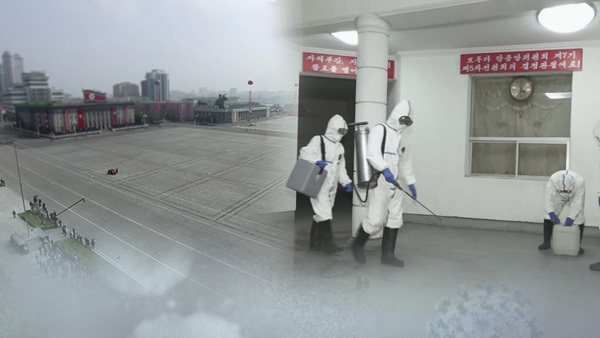
The US Treasury Department on Friday said it had allowed nongovernmental organizations to provide coronavirus-related humanitarian aid to sanctioned North Korea, including testing kits and respiratory devices.
The department’s Office of Foreign Assets Control released the list of items that have gained exemptions for countries like North Korea, Iran and Venezuela to assist in their battle against COVID-19.
OFAC said it is authorizing NGOs to provide items for the civilians of North Korea, which includes but is not limited to testing kits, respiratory devices, personal protective equipment and medicine used in prevention, diagnosis, treatment and recovery from COVID-19.
While all other financial transactions with North Korea are strictly prohibited under the sweeping sanctions imposed on its nuclear and missiles program, the NGOs can conduct transactions with the regime, including the payment of fees, taxes, and import duties related to humanitarian assistance.
It has also authorized provision and receipt of nonscheduled emergency medical services to North Korea, as well as noncommercial remittance below $5,000 a year.
NGOs can also export and reexport services for humanitarian purposes to the North, including food, medicine and clothing, as well as other assistance to provide shelter, clean water, sanitation and health-related services.
While more than 2.18 million coronavirus infections and 145,000 deaths have been reported around the world, North Korea has insisted it is totally free of the virus, a claim that has been disputed by observers.
Pyongyang has taken some of the most draconian actions against the virus starting early on: It closed its borders in late January and halted business with neighboring China, its closest ally and the presumed origin of the novel pathogen.
Observers have warned that if COVID-19 spreads to North Korea, its weak public health system, coupled with poverty and malnutrition of the citizens, may not be able to cope, as it lacks proper medical supplies, personnel and infrastructure to deal with an outbreak.
By Ahn Sung-mi (sahn@heraldcorp.com)







![[Graphic News] More Koreans say they plan long-distance trips this year](http://res.heraldm.com/phpwas/restmb_idxmake.php?idx=644&simg=/content/image/2024/04/17/20240417050828_0.gif&u=)
![[KH Explains] Hyundai's full hybrid edge to pay off amid slow transition to pure EVs](http://res.heraldm.com/phpwas/restmb_idxmake.php?idx=644&simg=/content/image/2024/04/18/20240418050645_0.jpg&u=20240419100350)






![[From the Scene] Monks, Buddhists hail return of remains of Buddhas](http://res.heraldm.com/phpwas/restmb_idxmake.php?idx=652&simg=/content/image/2024/04/19/20240419050617_0.jpg&u=20240419175937)

![[KH Explains] Hyundai's full hybrid edge to pay off amid slow transition to pure EVs](http://res.heraldm.com/phpwas/restmb_idxmake.php?idx=652&simg=/content/image/2024/04/18/20240418050645_0.jpg&u=20240419100350)

![[Today’s K-pop] Illit drops debut single remix](http://res.heraldm.com/phpwas/restmb_idxmake.php?idx=642&simg=/content/image/2024/04/19/20240419050612_0.jpg&u=)